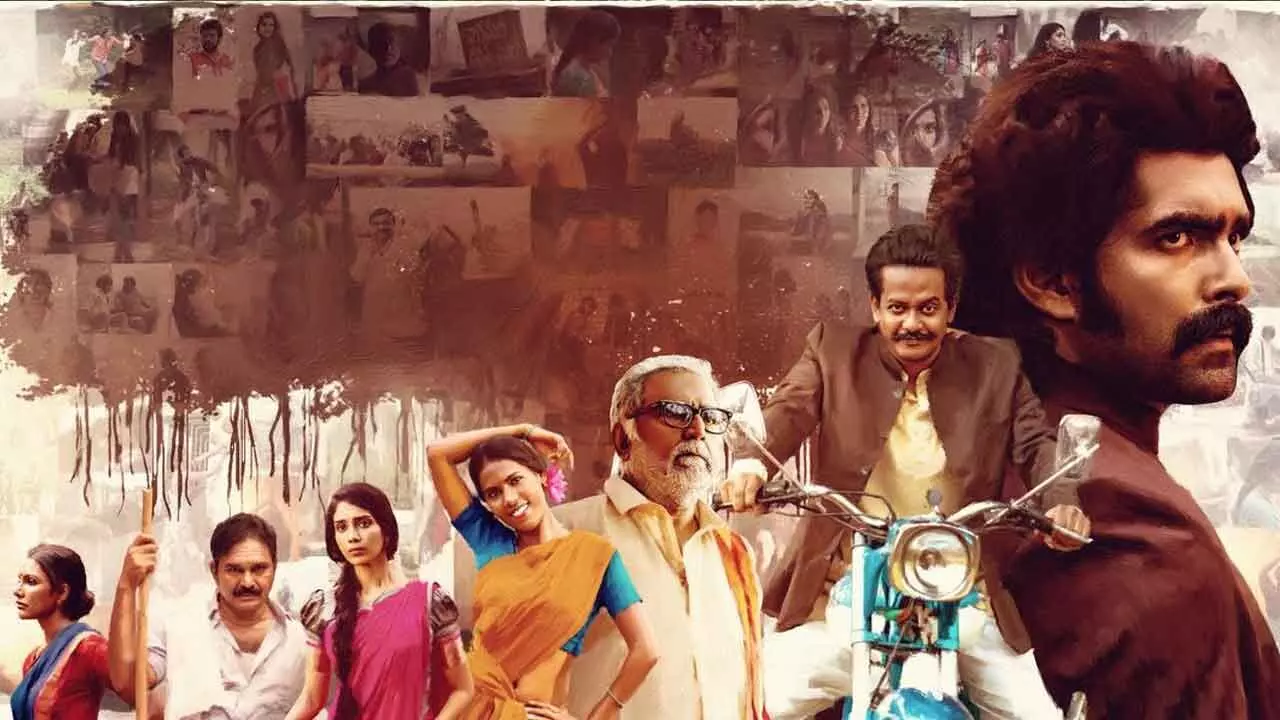‘Kothapallilo Okappudu’ Review: A Myth, a Village, and the Search for Truth
New Telugu film 'Kothapallilo Okappudu': A unique blend of romance, social drama, and cultural critique. Read our in-depth review.
'Once Upon a Time in Kothapalli': A Bittersweet Tale of Illusion and Community

A man's fabricated myth spirals into a community-wide delusion, challenging the very nature of truth. Debut director Praveena Paruchuri's Telugu dramedy, presented by Rana Daggubati, delves into the intricate relationship between perception and reality, leaving audiences to ponder and debate. The film, aptly framed by Anaïs Nin's quote, "We see things not as they are, but as we are," offers no simplistic answers, inviting viewers into a world where personal biases shape collective understanding.
Inspired by real events in rural Andhra Pradesh, the film is a collaborative effort with writer Guru Kiran Bathula, weaving complex themes into a light-hearted yet profoundly engaging narrative. Praveena Paruchuri, a New York-based cardiologist and producer of the acclaimed indie C/O Kancharapalem, takes the directorial reins, showcasing a keen eye for storytelling.
Set decades ago, Kothapallilo Okappudu is steeped in nostalgia, with cultural touchstones like Chiranjeevi's Gang Leader and Gharana Mogudu, and the stardom of Vijayashanthi and Bhanupriya, firmly anchoring it in a specific historical period. This rich backdrop is beautifully captured by director of photography Petros Antoniadis, whose lens brings rural Andhra Pradesh to life in warm, vivid tones. Ochre earth meets lush green fields, with subtle visual contrasts—a vibrant motorbike or a striking turquoise shirt—adding depth to the muted palette.
At its core, Kothapallilo Okappudu centers on Ramakrishna (Manoj Chandra), a local dance studio owner. His pursuit of the woman of his dreams, Savitri (Monika T), near a haystack ignites a chain of events that unravels an entire village's routine, exposing its inherent fault lines. The narrative is meticulously crafted, with subtle visual and thematic echoes appearing throughout. A prologue showing Ramakrishna lamenting under a tree finds resonance in a later scene featuring the menacing moneylender Appanna (Ravindra Vijay) under the same tree, hinting at deeper connections. Even a seemingly casual remark, "nuvvu devudu anna (you’re God, brother)," gains significant meaning as the story progresses.
The film adeptly navigates the village's intricate power dynamics. A palpable tension exists between Appanna (a nod to the Telugu word 'appu' for debt) and the zamindar, Reddy (Benerjee), layered with commentary on caste, class, and privilege. Amidst these power plays, Ramakrishna is captivated by Reddy’s daughter, Savitri. A standout character is Adhi Lakshmi (Usha Bonela), whom Ramakrishna uses to connect with Savitri. The film uses the barbs directed at Adhi Lakshmi’s dusky skin and her ironic nickname ‘Andham’ (beauty) to critique society’s pervasive obsession with fair skin. While reflecting societal bias, a stronger counterpoint within the narrative could have further enriched this critique. Usha Bonela delivers a quiet yet powerfully realistic performance.
Though the initial scenes may feel slightly uneven, the narrative quickly settles into a confident rhythm. The film's unexpected twist, if promotional materials are avoided, transforms it from a romantic comedy into a nuanced social drama. The background score by Varun Unni and Mani Sharma's songs, some echoing vintage Telugu hits, effectively elevate the drama. The pared-down production design by Jitendra Mourya and Vishal Gyanchandani beautifully highlights the rustic charm.
Crucially, the script avoids spoon-feeding its audience. It subtly explores profound questions about belief, truth, and human need. Small details, like Ramakrishna's words after an incident involving a bedridden man, offer crucial clues. The film even playfully pokes fun at commercial cinema's exaggerated narratives, yet it remains an earnest exploration of its themes. It dares to question whether power, bolstered by wealth, should be solely inherited.
The supporting characters significantly enrich the film's tapestry. Ramakrishna’s friends are far from generic sidekicks; their lives, much like the village constable who doubles as a priest, feel authentic and lived-in. Manoj Chandra delivers a fresh and convincing portrayal of Ramakrishna's evolving journey. Monika's performance is restrained yet impactful, while Praveena Paruchuri herself makes a brief but impactful appearance, posing challenging questions. However, it is Ravindra Vijay who truly captivates, delivering an effortlessly sinister and compelling performance.
Kothapallilo Okappudu boldly explores the idea that perhaps creation is not harder than destruction, but rather the reverse. Its final act leaves ample room for discussion and debate, making it a compelling and welcome addition to the Telugu independent cinema landscape, despite its minor imperfections.

